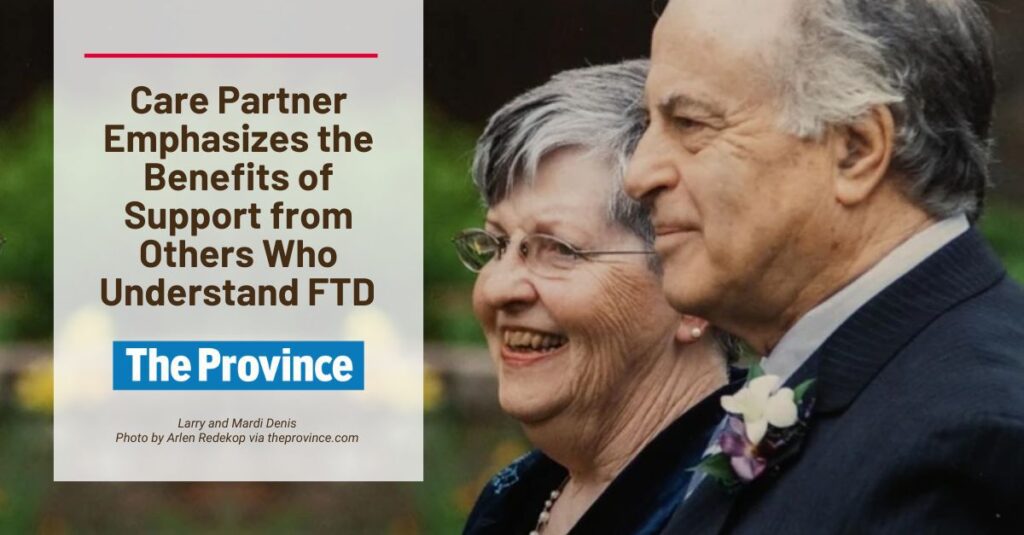Care Partner Emphasizes the Benefits of Support from Others Who Understand FTD

Navigating the FTD journey is much less daunting when you have support from others who have lived with the disease themselves, Canadian care partner Mardi Denis said in an article published on the website of The Province, a Vancouver newspaper.
Denis, a retired occupational health nurse, said that she was confused and concerned when her husband, Larry, began to change.
Her husband had always been a lovable curmudgeon, she said, but he was also intelligent and witty. As he reached his 80s, though, Denis noticed changes in his behavior. She initially suspected they were simply age-related, but as he worsened, she began to wonder if something more was wrong. Larry developed paranoia, and as his agitation grew, he sometimes lashed out at Denis.
Later, in a fit of rage, Larry tried to crash his car. A police officer found him on the road and recognized something was wrong. So, rather than confronting him, she offered him a hug. “He softened in her arms and broke down in tears,” Denis told The Province. Larry was taken to the hospital due to the encounter, and he was diagnosed with FTD.
Today, Denis says she understands Larry’s anger and frustration. Larry was experiencing anosognosia, the inability to recognize or perceive one’s illness or its effects on them, a distinctive feature of FTD. “It’s very scary for people to realize they aren’t the same as they used to be,” Denis says.
Like many families affected by FTD, the couple had to largely navigate their new reality alone. It was challenging for them to find information about what to expect from FTD and how to manage it.
Denis eventually began attending a monthly support group near her home in British Columbia. Although she found it difficult to admit she needed help, she discovered that having a place to vent, exchange insights, and feel understood is key.
The group has given Denis the strength to help Larry better and to advocate for and help others. Larry now lives at an independent living facility, and Denis speaks with him three times daily, bakes for him, and visits as often as possible.
“After 60 years,” she says, “you can’t stop loving and caring for a person, no matter how much they’ve changed.”
FTD is a complex disease with emotional and practical challenges that can be as isolating as they are overwhelming—finding a support group can provide you with a safe space to share your thoughts with others who understand and trade resources for the journey ahead. AFTD’s HelpLine can answer any questions you have about FTD and support you; contact the HelpLine at 1-866-507-7222 or info@theaftd.org.
By Category
Our Newsletters
Stay Informed
Sign up now and stay on top of the latest with our newsletter, event alerts, and more…
